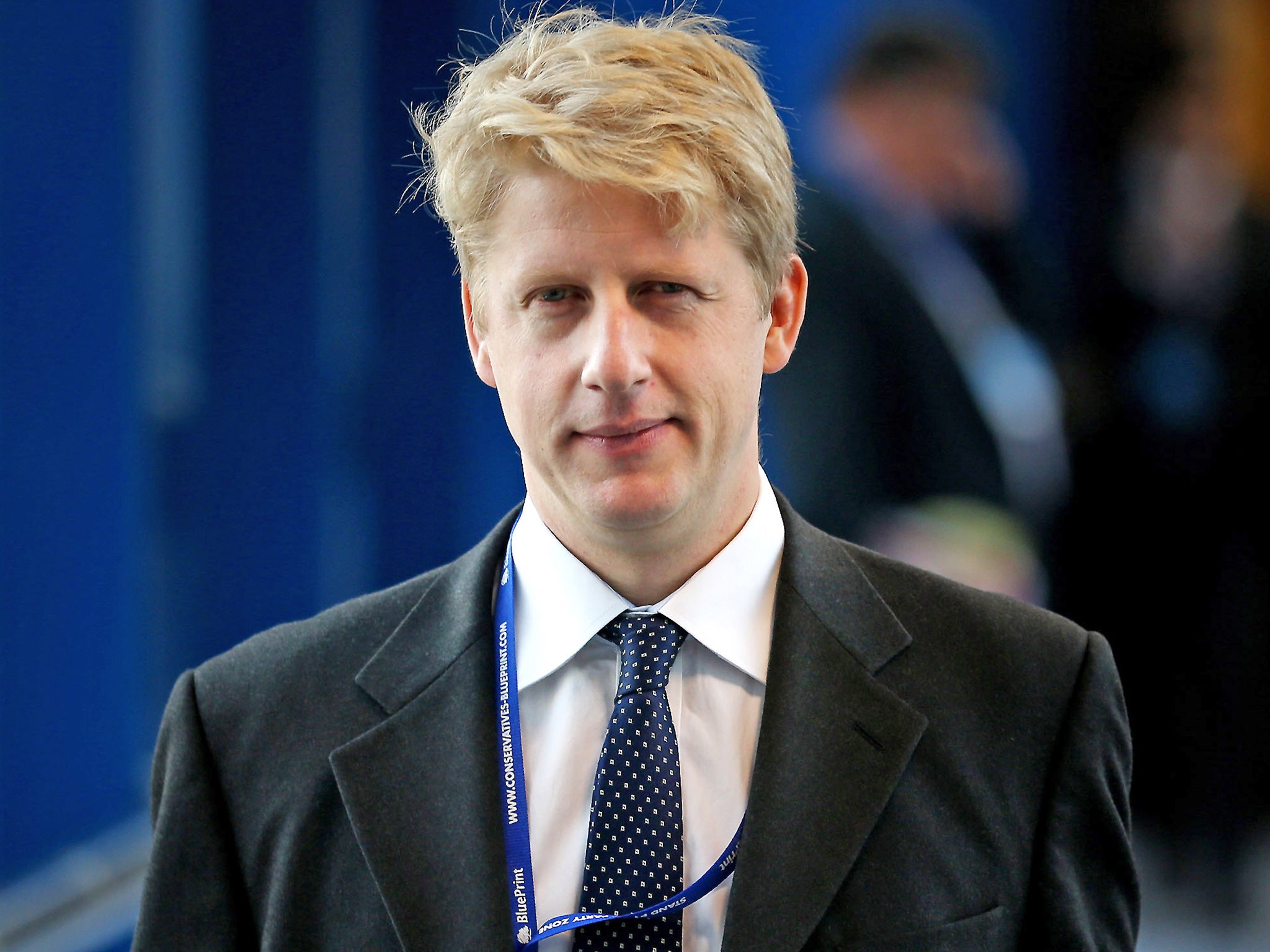Universities must be places that 'open minds, not close them', Jo Johnson warns
‘In universities in America and worryingly in the UK, we have seen examples of groups seeking to stifle those who do not agree with them,’ Mr Johnson will say

Your support helps us to tell the story
From reproductive rights to climate change to Big Tech, The Independent is on the ground when the story is developing. Whether it's investigating the financials of Elon Musk's pro-Trump PAC or producing our latest documentary, 'The A Word', which shines a light on the American women fighting for reproductive rights, we know how important it is to parse out the facts from the messaging.
At such a critical moment in US history, we need reporters on the ground. Your donation allows us to keep sending journalists to speak to both sides of the story.
The Independent is trusted by Americans across the entire political spectrum. And unlike many other quality news outlets, we choose not to lock Americans out of our reporting and analysis with paywalls. We believe quality journalism should be available to everyone, paid for by those who can afford it.
Your support makes all the difference.Universities must be places that “open minds, not close them”, Jo Johnson is to warn as he argues that students must be able to challenge controversial opinions.
The universities minister will add that there are dangers to shielding students from differing views under the banner of “no-platforming” in British institutions.
During a Boxing Day speech at the Limmud Festival in Birmingham – a celebration of Jewish learning and culture – Mr Johnson will say: “Universities should be place that open minds, not close them, where ideas can be freely challenged”.
It comes after the minister unveiled proposals earlier this year that mean universities could face fines for failing to uphold free speech under a new higher education regulator – the Office for Students (OfS).
The proposals – currently open for consultation – could also see universities facing action including suspension and deregulation.
Mr Johnson will add: “In universities in America and, worryingly, in the UK, we have seen examples of groups seeking to stifle those who do not agree with them.
“We must not allow this to happen. Young people should have the residence and confidence to challenge controversial opinions and take part in open, frank and rigorous discussions. That is why the new regulator, the Office for Students, will go even further to ensure that universities promote freedom of speech within the law.”
His comments come amid an ongoing debate about free speech at universities, and a number of reports of speakers, debates, literature and organisations being opposed or criticised, often by student unions, societies or particular groups of students.
Mr Johnson will also say that institutions must ensure there is no place for hatred, discrimination, extremism or racism.
“A racist or antisemitic environment is by definition an illiberal one that is completely in opposition the liberal tradition of our universities,” he will tell the festival.
Alistair Jarvis, chief executive of Universities UK, said: “Universities are absolutely committed to promoting and securing free speech and will not allow legitimate speech to be stifled. There is already a legal duty on the higher education sector to secure free speech within the law and universities take these responsibilities very seriously.
“They have a duty, not only to secure freedom of speech, but also to protect the safety of students and staff. This is not always easy to balance, but universities are becoming increasingly experienced in this area and have policies in place.
“It is important that universities do not become discussion-free zones. They must continue to be places where difficult topics are discussed and where people, however controversial their views, should be allowed to speak within the law, and their views challenged openly.”
Join our commenting forum
Join thought-provoking conversations, follow other Independent readers and see their replies
Comments